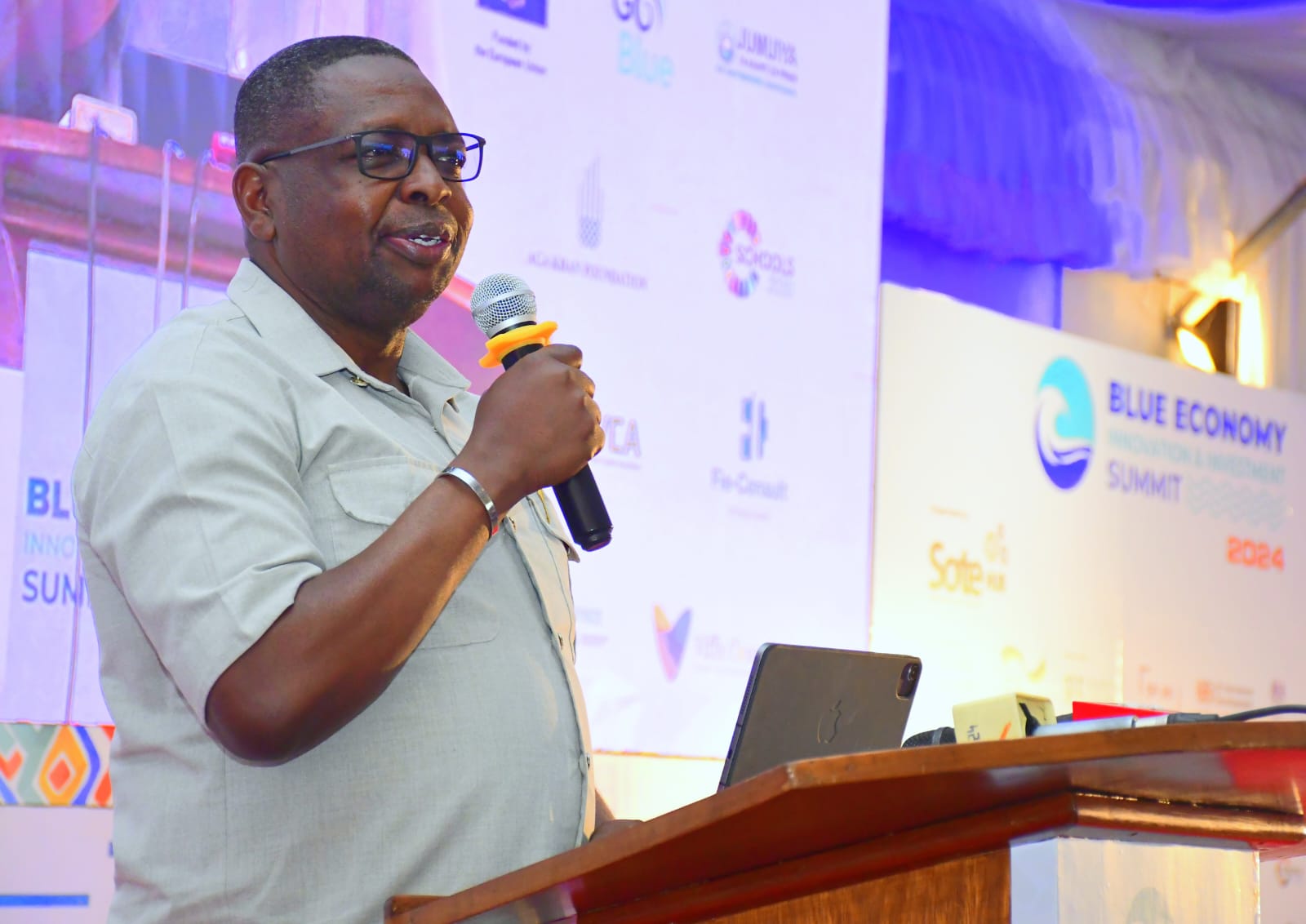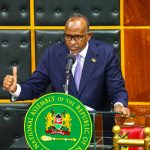Maritime and Shipping Principal Secretary Geoffrey Kaituko has urged the government, development partners, and investors to collaborate in enhancing investments aimed at revitalizing Kenya’s Blue Economy sector.
Despite being a key economic frontier with vast potential to create thousands of jobs, the Blue Economy remains largely untapped.
According to the National Treasury, the sector contributes 2.5% to Kenya’s Gross Domestic Product (GDP), generating Ksh178 billion annually.
However, experts believe it has the capacity to bring in as much as Ksh500 billion per year.
Speaking at the Blue Economy Innovation and Investment Summit in Mombasa, themed “Building an Inclusive Blue Future,” Kaituko underscored the need to unlock the sector’s potential, which includes 18 sub-sectors.
“In Kenya, we are barely scratching the surface,” he said.
He noted that Kenya should be generating 20 times more revenue than it currently does through the Kenya Maritime Authority (KMA).
“We need to open up our registry and become a serious flagged state. Additionally, areas like ship recycling and shipbuilding present significant opportunities,” the PS stated.
Kaituko cited a recent example where a local company secured a tender to build a vessel for Uganda, creating 400 jobs in the process.
He stressed the importance of investing in maritime transport, noting that Kenya loses around Ksh600 billion due to a lack of involvement in both international and local shipping.
The PS further called for increased resources to be directed toward the capital-intensive Blue Economy, urging taxpayers to support the sector through infrastructure development, capacity building, and human resource investment.
“We can easily become a key seafaring nation,” he said, recalling Kenya’s past prominence in the sector.
He also compared Kenya’s performance to that of Ghana, which, despite having a shorter coastline, generates ten times more revenue through its maritime authority.
Kaituko emphasized that KMA, as the sector’s regulator, has all the necessary tools and regulations but has been weak in enforcement.
“If KMA can enforce regulations like the KMA Act of 2006 and the Merchant Shipping Act of 2009, we will unlock the sector’s full potential,” he added.
Kaituko commended the European Union (EU) for its support through the ksh3.2 billion Go Blue project and encouraged county governments to build on its foundations.
EU Ambassador to Kenya, Henriette Geiger, reiterated the importance of the Blue Economy across Africa, noting that many countries, including Kenya, have not fully exploited their marine resources.
Geiger also revealed the EU’s ongoing efforts to help Kenya develop its Blue Economy strategies.
“We aim to integrate both Blue and Green economies, recognizing the need to manage land and sea together,” she said.
During the summit, the EU handed over five search and rescue boats to KMA to enhance surveillance in Kenya’s territorial waters.
However, Geiger stressed that EU support is not sufficient on its own, urging national and county governments to create a conducive environment for investments in the Blue Economy.





